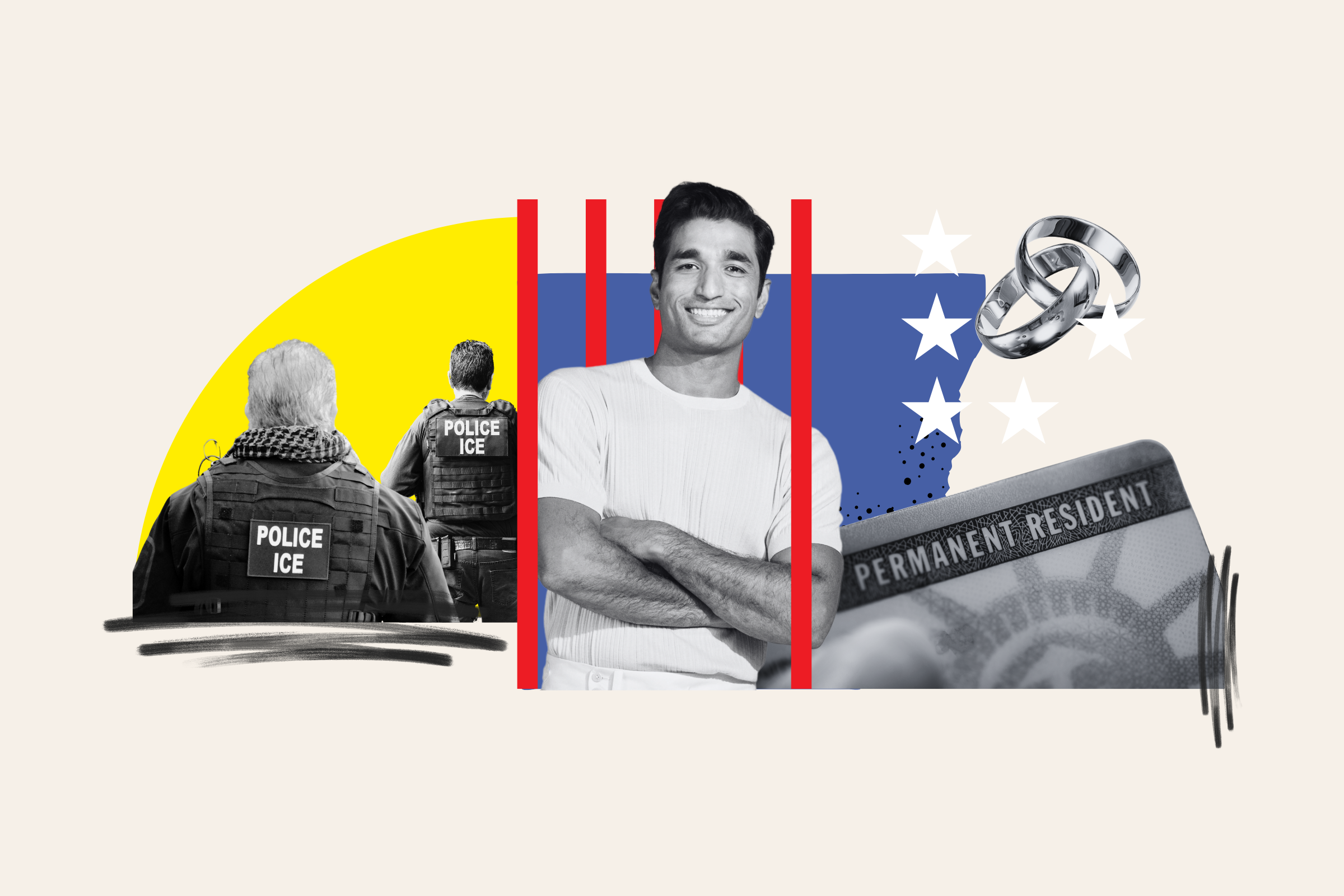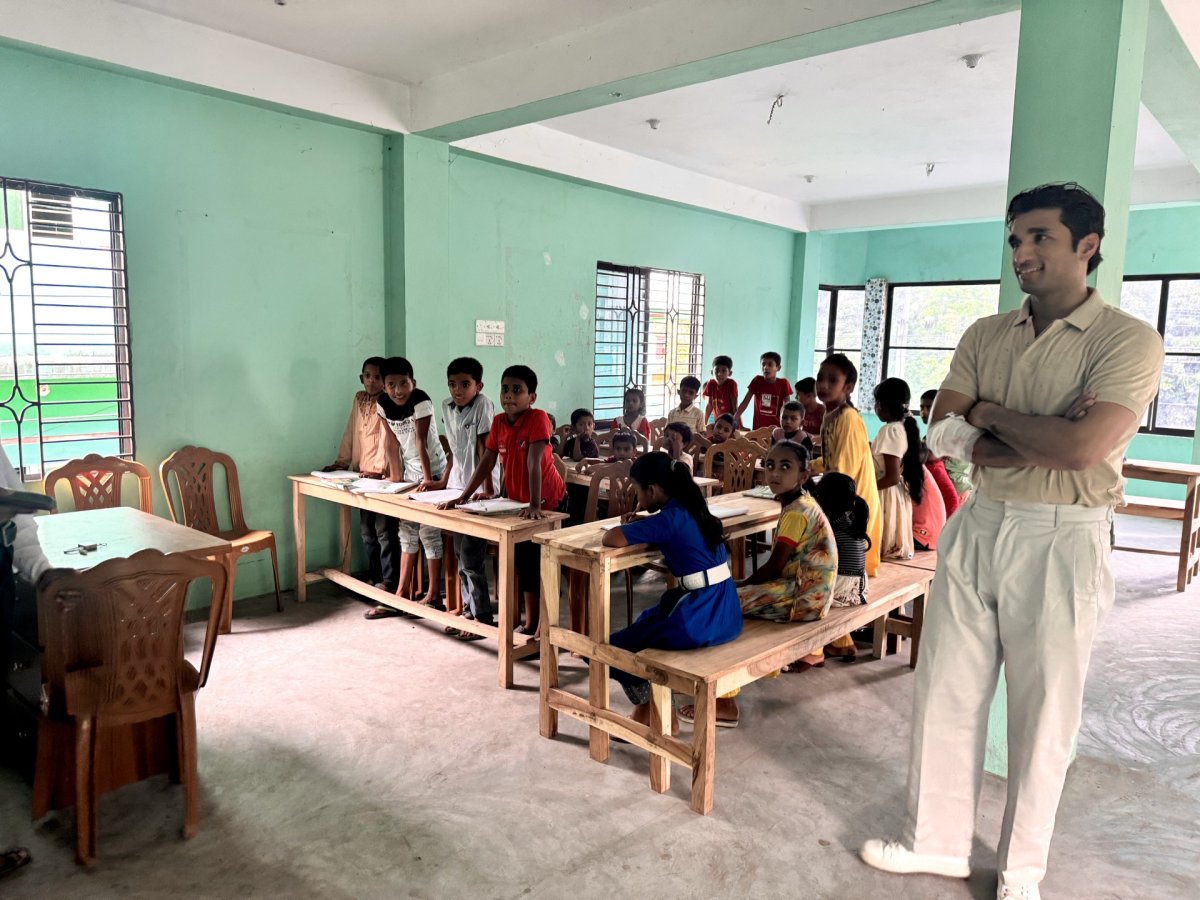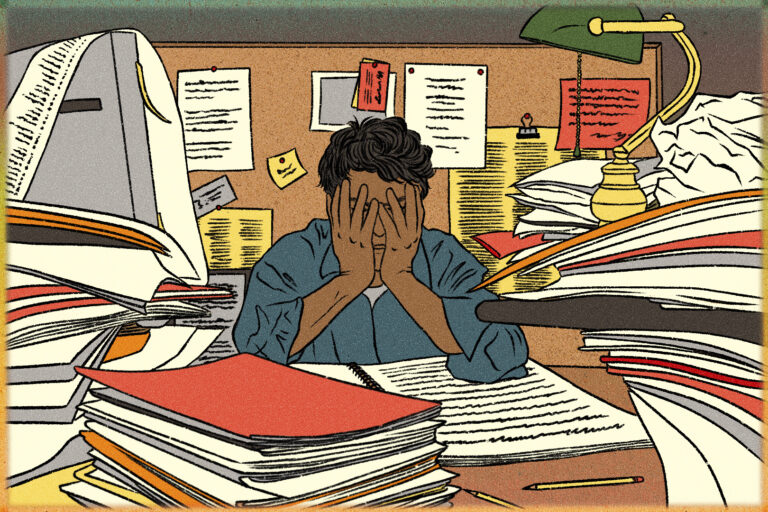
Summer House‘s Imrul Hassan, who spent 23 years of his life living in America’s shadows while he was undocumented, took a risk sharing his story on national television—but he doesn’t regret it, Now, he’s hoping to use his own experience to help the next generation nearly 8,000 miles away.
“It was such a hollowing feeling,” Hassan told Newsweek about being undocumented. “But having said that, it’s given me so much perspective in struggle…I think it’s led me to where I am right now, to where, I just wanna give back as much as possible.”
Viewers of the hit Bravo reality TV show got a glimpse into Hassan’s background when he briefly shared on air that he didn’t have legal status until he married his then-girlfriend.
When the scene was filmed, the world was different, and America’s political climate has since shifted significantly. One of President Donald Trump‘s biggest campaign promises was to fix America’s broken immigration system. Since taking office, he’s ramped up deportations, including of people with green cards and those who have been in America undocumented for decades.
After getting married at age 23, Hassan, who is from Bangladesh, and his wife had to undergo numerous interviews validating their marriage. Though his lawyer friends have assured him he should be fine, speaking openly about being undocumented on national television is a little concerning to the now 37-year-old New Yorker, given the number of stories of people who have green cards being deported.
“I get comments …like, yeah, we’re sending this to ICE, so they’re gonna come get you, things like that,” Hassan said. “Even though rationally I know I’m fine, but you know, you still read the comments, you still see some of them, it’s like, it makes you think just for a second…It’s a non-zero percent chance that something could happen.”
Hassan’s Summer House castmate Kyle Cooke encouraged him to share his story.
The two knew each other before Hassan joined the cast this season, so Cooke knew that he had spent the bulk of his life “living in the shadows,” as Hassan characterizes his life before getting legal status.
“I want my friends to better understand the shoes he was in and his back story and how he ended up here,” Cooke told Newsweek. “I thought it was one of the more interesting…stories that I heard in my life.”

Photo Illustration by Newsweek/Getty/Canva
Summer House cast members were shocked to learn that Hassan had been married and seemingly even more shocked to learn that he was an undocumented immigrant before the marriage.
Hassan told Newsweek that being undocumented was “debilitating,” and he was young and in love, so getting married seemed like the right next step. The couple ended up breaking up, but having legal status opened up a whole new America for Hassan.
“It’s this massive, massive weight had been lifted off me,” Hassan said. “I finally felt like I could really start my life.”
Growing up, the family’s legal status wasn’t a topic of conversation, and while he did all the usual things people do—went to school, hung out with friends—life was never normal.
At times, Hassan was angry at his father for uprooting the family from their life in Bangladesh and bringing them to America. When he’d ask his dad why he brought them to the United States, he’d say it was because they were much better off than people back home.
But to Hassan, it was difficult to accept growing up because he felt people in Bangladesh were “happy in their own way” because they didn’t know what life in the U.S. was like. They didn’t know what they could be missing out on.
“What it felt like to me was like, you go to the amusement park, you see all these fun rides and they look amazing and then someone tells you, well, can’t ride any of those rides,” Hassan said. “I always had a hard time in my own way, you know, fitting in and this was just another part of that. Like, where do I belong?”
Hassan didn’t share his legal status with his friends growing up. He wanted to fit in, and being undocumented would make him stand out. So, when everyone was getting their licenses and people questioned why he wasn’t driving, he’d just say he doesn’t like to. Plus, he was living in New York City, so it was fairly easy to dodge the issue.
Since getting his green card, Hassan has been more open to talking about his journey, but he still wasn’t sure if he wanted to discuss it on the show. He’s still not sure if it was the right decision, but he’s hoping that by sharing his story, other people who don’t fit in—however that is—will feel less alone, and he can give back to the country his family left behind.

For the last 12 years, Hassan has returned to Bangladesh almost annually and realized a major flaw in his community. Kids weren’t starting to learn English until high school, which made it much more difficult to become fluent, so Hassan decided it was time to create a program that immersed kids in English from a young age.
As a real estate agent, Hassan has had virtual assistants in the Philippines, and he doesn’t think there’s any reason people in Bangladesh can’t have the same kind of career.
“A lot of salaries in the Philippines are $200-$300 a month. Kinda, the same thing in Bangladesh, it’s a little bit less. But then when you have these virtual assistant jobs, you go from making $200, $300 a month to making $500, $600, $700. It’s a huge jump,” Hassan said.
He’s already built one brick-and-mortar school to help parents in his home village see English as a “tool for growth” and is on track to open another one in a few months. Hassan has mostly undertaken the project himself, with the help of people in the education field as guides, and he recently started a GoFundMe to help raise awareness for the project.
Along with English lessons, Hassan wants kids in Bangladesh to watch English-language movies and cartoons. It’s how he learned, and he thinks it will keep kids motivated to perfect their English to the point they feel completely comfortable working an English-speaking job when they’re adults.
“I think it’s kind of daunting if you don’t speak English or you don’ know how to read English, or it’s just not something comfortable to you, then you’re gonna kind of steer away from that,” Hassan said. “So, I’m thinking, well, let’s get these kids comfortable. Let’s get the people comfortable with the idea of things outside of their immediate bubble.”
Ultimately, Hassan doesn’t know if he’ll be able to attract a large number of people to the program or if he’ll be able to teach English to every kid who participates. But he knows there will be some kids who succeed, and it’ll break the cycle of generational poverty.
Admittedly, Hassan’s future might not be in reality television, but he’s okay with that.
“One of the reasons I went on Summer House was I wanted to talk about this a little bit in some way, and have a little platform for something that I am super passionate about,” Hassan said. “It’s led me to this where I can give back to the community that I’m from…I feel this is my life’s purpose in a way.”




